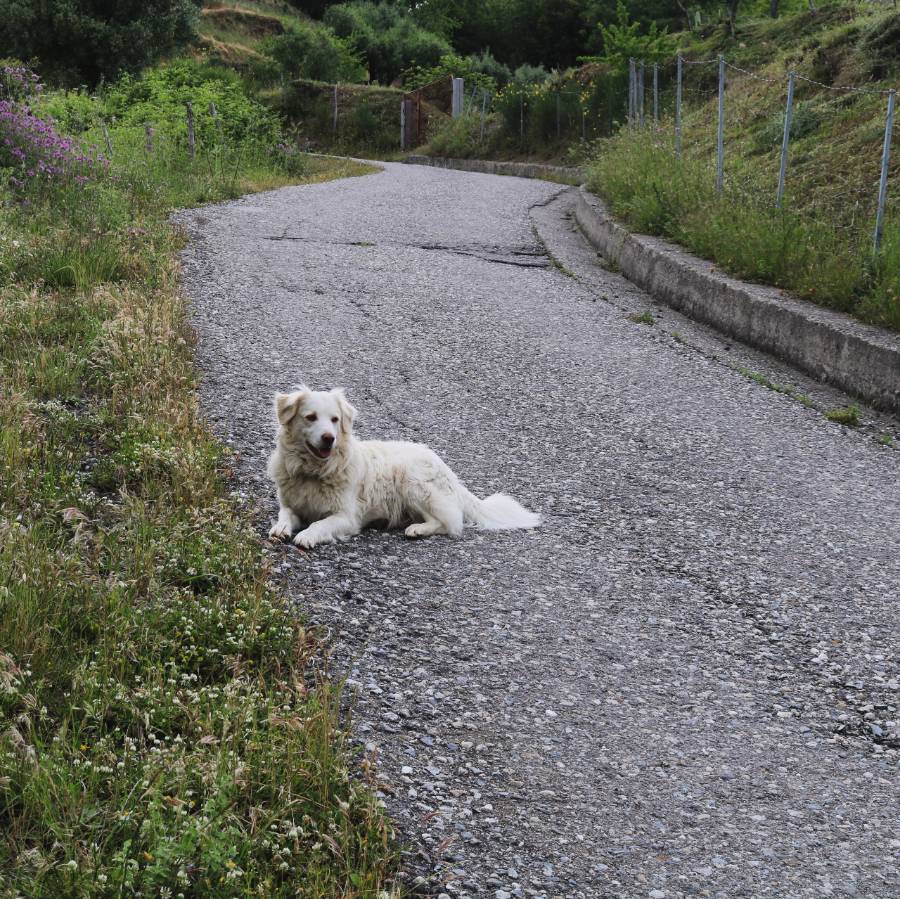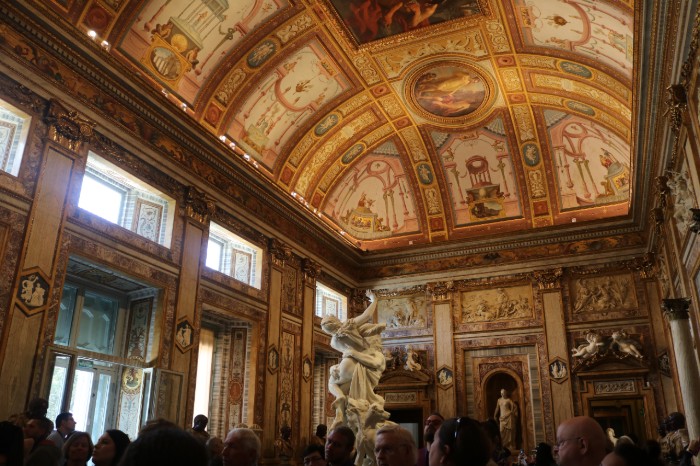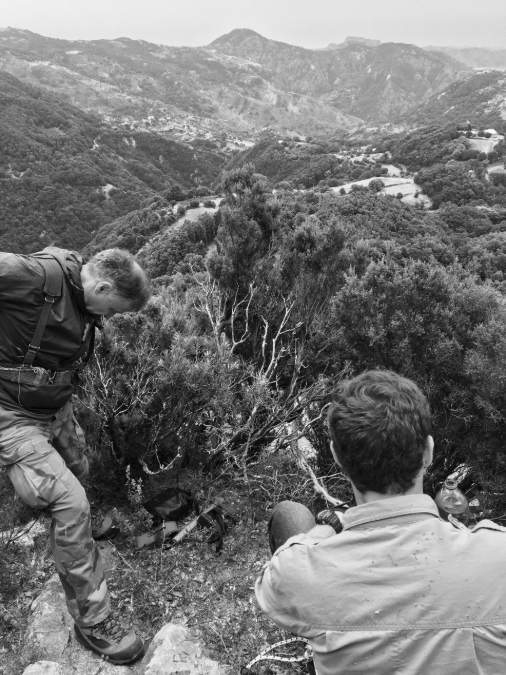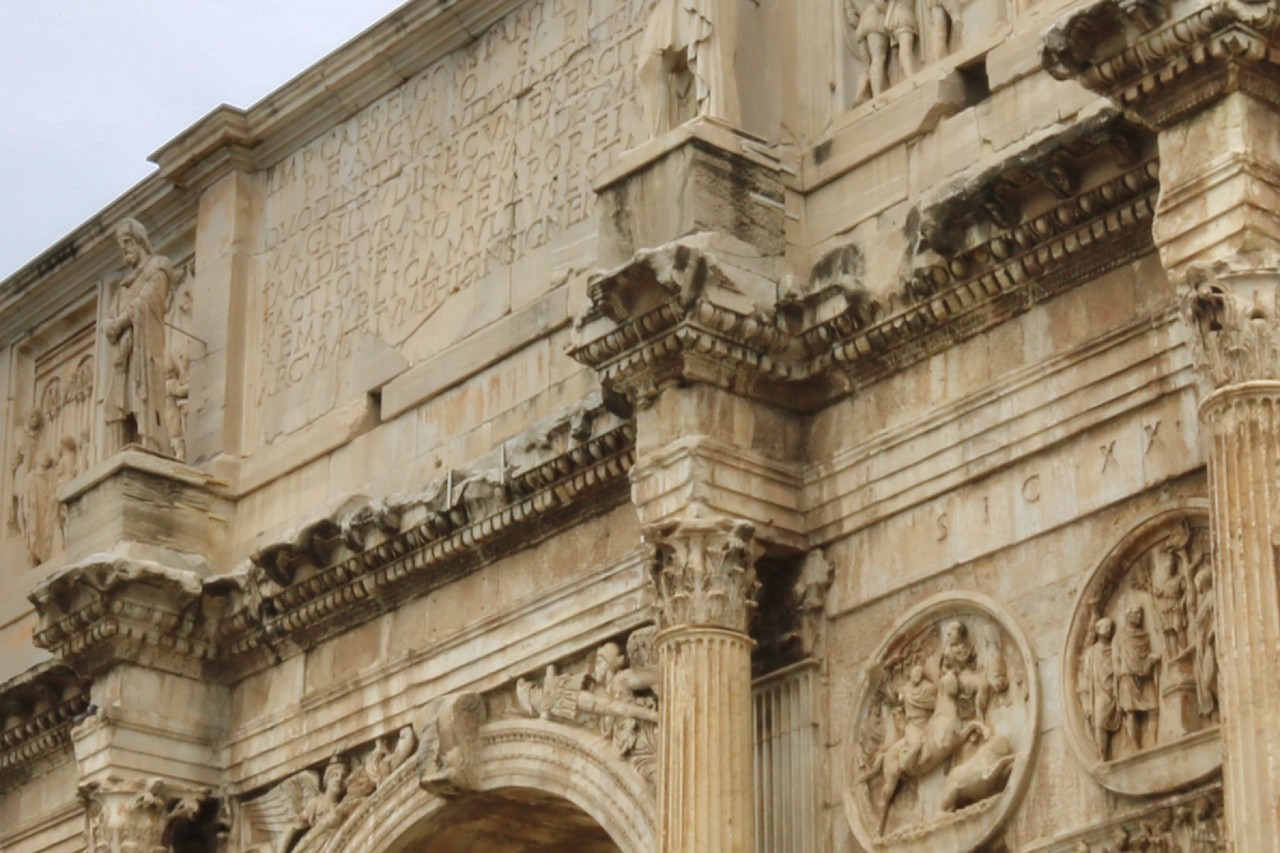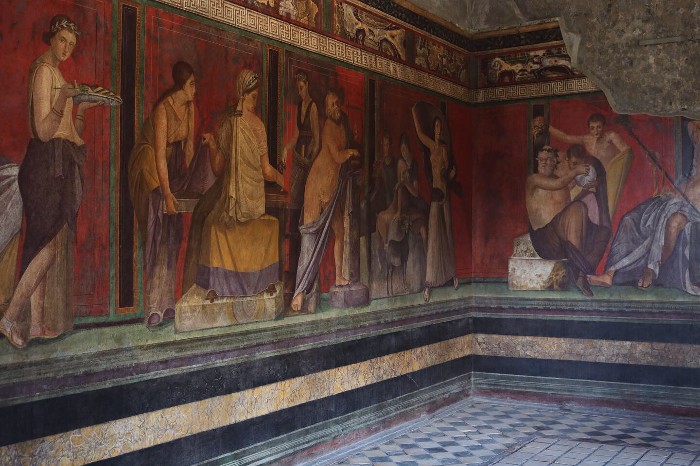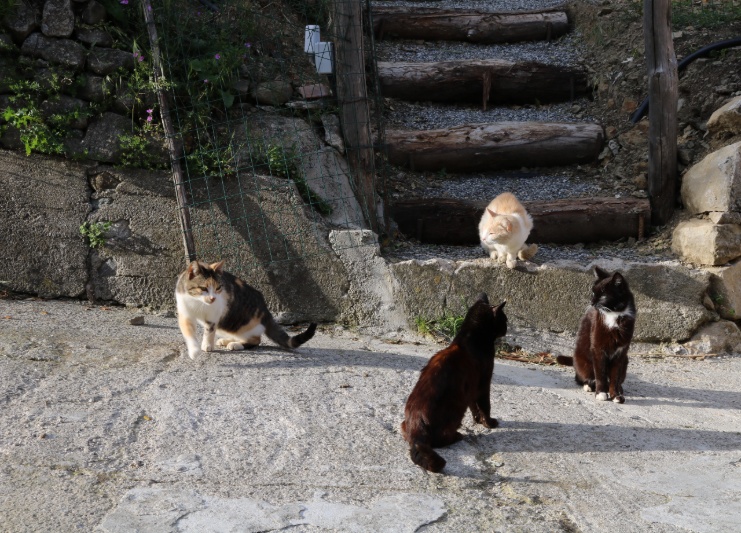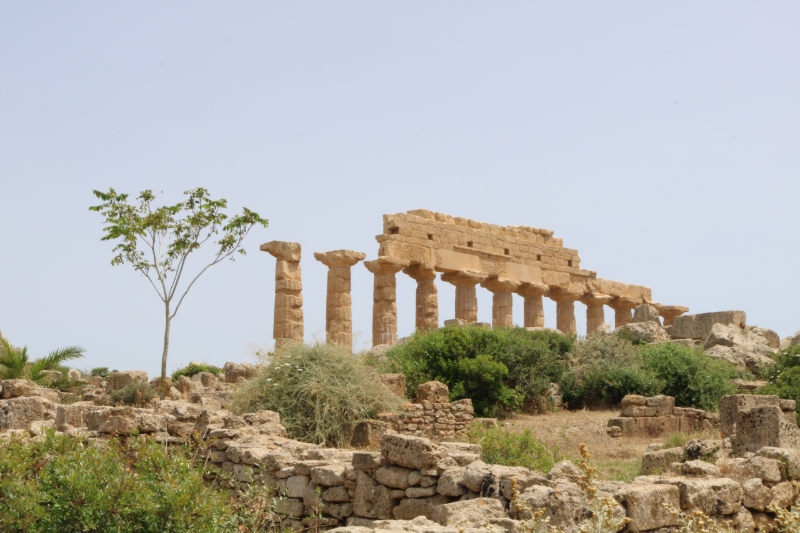
Sitting under the hot sun with dusty ceramic artefacts in a remote Italian village wasn't what Ashley Lavanchy imagined she'd be doing when she first started studying at Langara. But her academic path changed when instead of choosing a general arts direction for her studies, she decided to pursue Classical Studies. "It was a split moment decision," says Ashley. "I was always interested in mythology and folklore in general but was particularly drawn to Greek mythology and archaeology because my mom was an anthropologist. She took some archaeology courses, and she would always tell me about it,” explains Ashley. "I wasn't sure if I was going to stay in it at first. But honestly, it's because of Jennifer Knapp, who is the main professor in Classical Studies—she made me want to keep learning more and stick with it."
When the opportunity to volunteer with professor Knapp on an excavation project examining ancient ceramic material in Italy, Ashley jumped at the chance. The excavation project is focused on studying pottery from a site called Oppido Mamertina and is a collaboration between the Department of Interdisciplinary Studies at Langara and Dr. Paolo Visonà with the University of Kentucky. Jennifer Knapp, coordinator of the Classical Studies at Langara, is an archaeologist specializing in the Hellenistic/Republican period ceramics (4th to 1st centuries BCE) with past experience on five different excavation projects since 1997 in England, Greece, and Italy.
For her first trip to Italy as a Classical Studies student, Ashley was in good hands.
Sun, Ceramics, and Siestas
Being young, female, and with limited experience travelling internationally, Ashley decided to spend a few weeks in Italy with her aunt to gain some familiarity and confidence before the start of her fieldwork in the town of Antonimina. When she finally arrived in Southern Italy, Ashley wasn't sure what to expect but soon learned the cadence of her day would be very 'Italian'. Calabria is located in what is known as the 'toe' of the boot-shaped southern region of Italy and is surrounded by the dazzling blue of the Mediterranean.
Being on-site in Italy was like discovering history in a completely different way for Ashley. "The best thing was that it just kind of made everything seem more real. Because normally you're just seeing like little pictures in textbooks which are not always that great of quality," explains Ashley. "It's so different when you're actually holding artefacts in your hands and seeing the little fragments of ancient pottery." She remembers a moment when handling a piece of ceramic that was particularly special.
"There was a little fingerprint, and it was just one of those things that you go, wow, real people made this. And this is something that exists in the world and not just in my books."
Through studying pottery, Ashley was able to make direct contact with the past and to the lives of the people that once lived in the region.
With one other Langara student and a Langara alumni in the cohort, a small group lived together at a spacious rental, which Ashley describes as more "like a farm" with space outside for large tables to be set up for their work. The owners’ parents did in fact still keep animals on the property and continued to grow small crops on the land. It was an idyllic place to learn and Ashley grew to love the pace of life on the farm. "We were working outside with the ceramic pieces because they were super dusty as they'd been in storage for some time," says Ashley. She and her fellow students soon fell into a schedule of waking fairly early, working until lunchtime. Then says Ashley, in typical Italian fashion, "we would take a nap in the middle of the day if it was scorching out and then, go back to work for a few hours until we had dinner around like seven or eight."
There's a hint of longing in her voice as she remembers the Italian way of life. She admits the food lived up to its reputation, and she always felt like restaurants were happy to accommodate her vegetarian diet. "I really loved the people; they were so welcoming and friendly," says Ashley. It seemed like people were excited to know that she was working with Jen and Paplo wherever they went in Calabria. "Their warmth and kindness were so wonderful." Ashley pauses, then adds, "I never wanted to leave!"
Classics and Collaboration
The project in Calabria, run by the Foundation for Calabrian Archaeology and the University of Kentucky, offers Langara students a rare experiential learning opportunity to apply their classical education; they learn in real-time the rigours of working on an archaeological site and contributing to research. In addition to Dr Jennifer Knapp, the academic team collaborating on the study in Calabria includes principal investigators, Dr Paolo Visonà (field director).
Working alongside professor Knapp and Visonà, was "amazing", says Ashley though she felt at times it was "strange being away from home for so long." It helped that the small group collaborated well throughout the two-month study. "We would play music while we were working," remembers Ashley, "and sing – we spent a lot of time singing along to Queen."
Frequent day trips to explore the region and explore museums offered another avenue for experiential learning. Ashley remembers one day when they came across the remains of a Greek theatre. "It was just kind of all like grown over and stuff. It wasn't much of a tourist spot, but it was really cool to just come across, as it was the first one that I saw on the trip. I was blown away," says Ashley.
Over her two months in Calabria, Ashley and her fellow students, along with Paolo and Jen, went on a few local excursions, including travelling to Sicily. "It was cool because we also got to visit one of Jen's friends who had also taught me at Langara. She had a temple site she was working on in Sicily. So, we got to go and see what she was working on there and spent about a week. At one point I saw they were digging a trench and I thought, this is so neat."
The small day trips broke up the sometimes long hours on the project in Calabria, and included trips to the ancient cities of Locri and Gerace where the students visited museums. The benefit of these trips for Ashley was the unique collections found in these smaller towns that you would likely miss out on if you just went to the usual tourist
spots like the Vatican. "There were just little things that were so local and specific, things that you wouldn't find anywhere else," says Ashley.
"I felt like I was learning a different aspect of history that I wouldn't have otherwise have known from a book. So that was kind of amazing."
The field experience in Italy gave Ashley a more nuanced view of the subjects she'd been studying in the classics program at Langara. "It deepened my love for history. I also began to understand how every little area is unique and I think when you're writing papers in your first year you tend to make these broad generalizations but when you learn in the environment, you're learning on such an intimate level, you see all the differences between towns. They weren't all that connected to one another in the past and had different cultures and ways of doing things. Being there, it just came into full view in a way I'd not experienced before."
Future Digs
Before she went to Calabria, Ashley hadn't considered archaeological study as a career path because she'd always imagined it as an "isolated and difficult job" in some "remote area", but her study experience completely changed her perception. "When I was there, it started to feel like something I could actually do."
In addition to gathering data and categorizing the artefacts, additional education came with travelling to another country and being immersed in a different culture. "I learned a lot because I hadn't been out of Canada before, except when I was like a young kid," explains Ashley. "So that was the first time I had gone anywhere by myself outside of Canada.
After spending two months in Italy, it was hard to say goodbye. "We were in such a small place in Calabria that I would have never probably visited otherwise if not for Jen, which made it so special. And the last day when I was leaving on the train, I was trying so hard not to cry," says Ashley. "I was thinking, I really don't want to leave."
Ashley hopes to return one day once it's safer to do so and pursue more work in the archaeology field. "It was one of the best, if not the best, experience of my life so far. So, I would do it again if I could. Honestly, I'd love to go back with Jen if that's possible one day."
